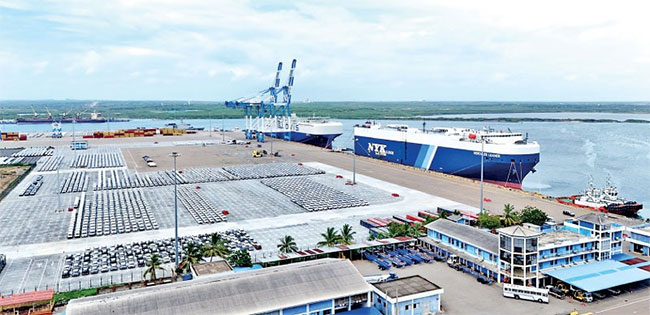By: Staff Writer
June 29, Colombo (LNW): Sri Lanka’s largest ever foreign direct investment — a $3.7 billion oil refinery project in Hambantota by Chinese energy giant Sinopec — is facing delays due to unresolved issues between the government and the investor.
The project, which was formalized during President Anura Kumara Dissanayake’s state visit to Beijing earlier this year, remains stalled over key disagreements, notably on the share of refined fuel Sinopec will be allowed to sell in the domestic market.
The Chinese company has demanded unrestricted access to the local market for its products, while the Sri Lankan government has capped it at 20%.
According to a senior official at the Ministry of Power and Energy, who spoke on condition of anonymity, no final agreement has been reached regarding the local market share. However, he noted that discussions are ongoing, with hopes of resolving the matter soon to allow the project to commence.
Beyond the local sales issue, tax concessions and land allocation are also under negotiation. Sinopec has reportedly requested more land for potential expansion, and both parties are yet to finalize terms on the fiscal benefits the company will receive.
Additionally, concerns about the availability of adequate water resources in the Hambantota region have surfaced, raising questions about the long-term viability of refinery operations in the area.
Despite the hurdles, the government remains committed to moving the project forward. Officials maintain that while major issues like market access and tax terms are still under discussion, other matters such as land and regulatory frameworks are considered minor and can be addressed quickly.
Sinopec’s proposed oil refinery will have a daily processing capacity of 200,000 barrels, with a significant portion earmarked for export — a move that is expected to enhance Sri Lanka’s foreign exchange earnings. The project is also anticipated to provide an economic boost to the Hambantota region by creating jobs and improving local livelihoods.
However, the lack of progress over the past six months has raised concerns about the future of this high-profile investment and the broader implications for other Chinese-backed projects in Sri Lanka.
Professor Liu Zongyi, Senior Fellow and Director of the Centre for South Asian Studies at the Shanghai Institutes for International Studies, recently noted that Sinopec is facing serious challenges in executing the project.
The President’s Media Division has emphasized that the project’s benefits will eventually extend to the entire country, improving economic conditions and supporting development goals. For now, however, the ambitious refinery venture remains in limbo, pending resolution of the remaining disputes.

